Don’t let fear hold you back from sharing your faith, says Andy Bannister. God is at work in the world today, and he wants to involve you in his mission
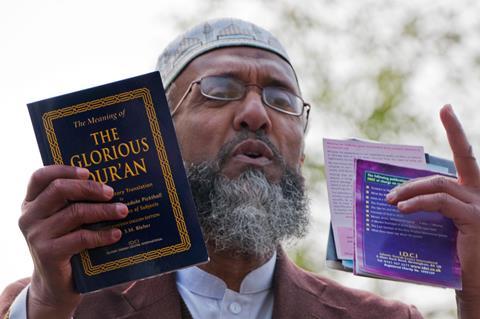
A recent poll caused much excitement when it revealed that Christians are less confident in talking about their faith than Muslims. The survey for the Institute for the Impact of Faith in Life reported that 38 per cent of Christians prefer not to share their faith versus just 29 per cent of Muslims.
The results didn’t entirely surprise me. I regularly travel throughout the UK, teaching Christians practical tools for sharing their faith. Time after time, I’m told that fear is what holds people back. And I understand that: when I worked in the NHS, I was likewise nervous about evangelism.
Equally, that Muslims are more confident did not surprise me. From my first encounters with Muslims, when I used to go to Speakers’ Corner at Hyde Park each weekend, I’ve been impressed by how eager my Muslim friends are to talk about their beliefs. If you have Muslim neighbours or colleagues and you ask them about their faith, they’re keen to tell you.
Culture is key
So what’s going on? A big part is cultural. Many Muslims come from countries where religion is out in in the open: conversely in the UK, many Christians have grown up imbibing the idea that religion belongs at church or home. We have unwittingly privatised our faith.
I also wonder if sometimes we Christians have allowed our fears about evangelism to run amok: fear of the consequences at work, fear of social exclusion, and fear of standing out. The thing about fear is that sometimes it reveals where our idols lie: fear shows what we can’t face the risk of losing. Let’s therefore ensure we haven’t accidentally given ’fitting in our social circle’ greater importance than faithfully witnessing to Christ.
But there’s a deeper story too. The same poll revealed that the average Muslim takes their faith more seriously: for example, only 50 per cent of Christians said their faith helps them find purpose in life, compared to a whopping 88 per cent of Muslims.
Now of course it’s important to ask what the word ‘Christian’ is doing in that statement and thus my immediate conclusion was we’re dealing here with cultural Christians, or CRINOs (Christians In Name Only). Christianity certainly has a lot of nominalism in the camp; but then so does Islam, revealed when you look at statistics for things such as mosque attendance.
But in the Muslim world, where religion, culture and politics are more tightly integrated, a ‘nominal’ Muslim will believe far more things and believe them more fervently than will a ‘nominal’ Christian. All cultural forms of religion were not created equal.
God is on the move, not least among Muslims
And cultural Christianity is on the rise, especially since the messy demise of the New Atheism. Whether it’s the gay, agnostic journalist Douglas Murray, who now calls himself ‘a Christian atheist’ because of his appreciation of the values of the Christian faith; or psychologist Jordan Peterson who describes himself as “conditioned in every cell as a consequence of the Judeo-Christian worldview”.
There’s even the enfant terrible of the New Atheism, Richard Dawkins himself, who in an Easter interview with LBC radio admitted “I count myself a cultural Christian.”
A challenge and an opportunity
What should we make of all this? I think it poses both a challenge and an opportunity for the Church. The challenge is, in our teaching, preaching and disciple-making, to raise up men and women who are confident in what they believe and winsome in how they share it. But there’s an also an amazing opportunity: to share Jesus with those who think Christianity is useful but haven’t yet realised that it’s true.
I was also struck by the survey’s discovery that only 28 per cent of people who identify as ‘Christian’ think Christianity is uniquely true. (Those 28 per cent are the ones doing most of the evangelism, by the way!) Some of that theological wooliness is probably driven by fear of causing offence: “How can I say to my Muslim friend that Jesus is the only way?” (an odd qualm, given that your Muslim friend thinks Muhammad is the only way!).
But we also have a deeper problem: namely the way much of the institutional Church has been busy these last few years selling Christianity as good advice - whereas it’s actually good news, primarily that Jesus is Lord, in a very singular and wonderful sense.
In all of the very human confusion that so often riddles the Church, there is also exciting news, in that God is on the move, not least among Muslims. Whether it’s the wonderful fact that the fastest growing Church in the world is the Iranian Church, or the many stories of Muslims finding faith - have a read of Nabeel Qureshi’s Seeking Allah, Finding Jesus (Zondervan) or the dramatic stories of the Holy Spirit sweeping the Muslim world told in David Garrison’s A Wind in the House of Islam (Wigtape Resources), God is at work among Muslims.
And when Muslims turn to Christ, they often make some of the boldest evangelists I know!



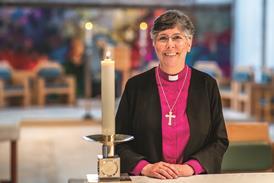


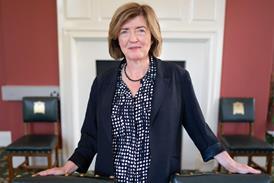

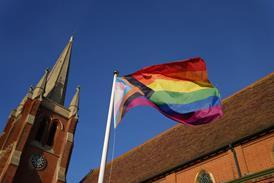
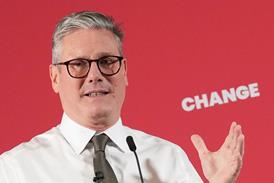





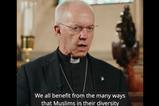






















3 Readers' comments